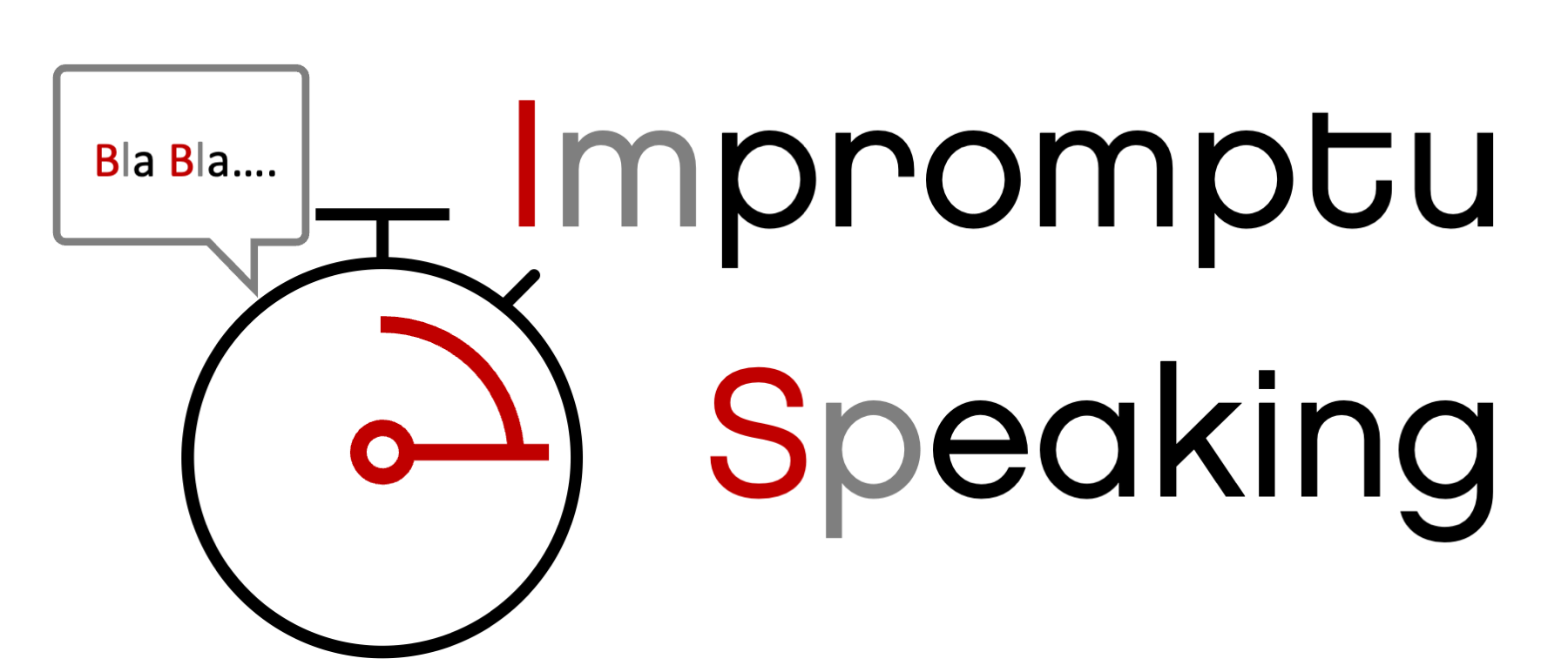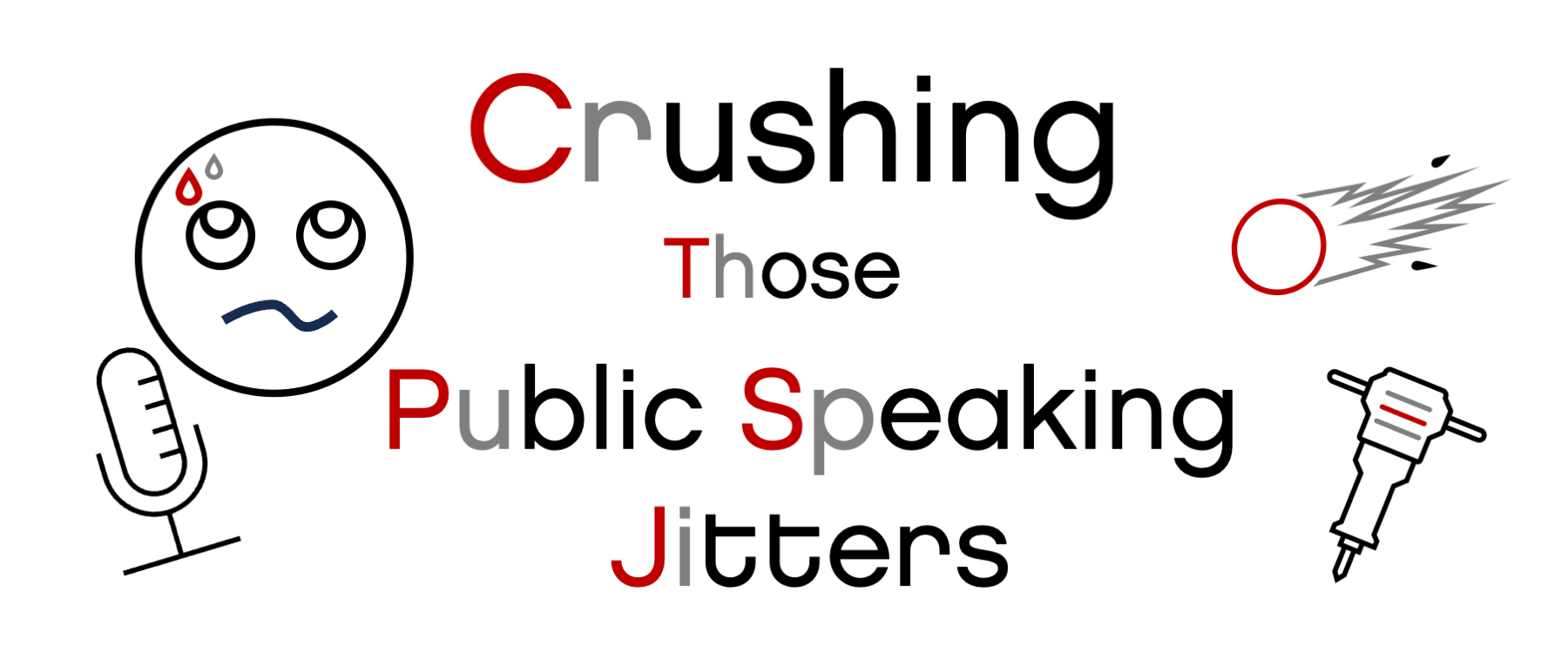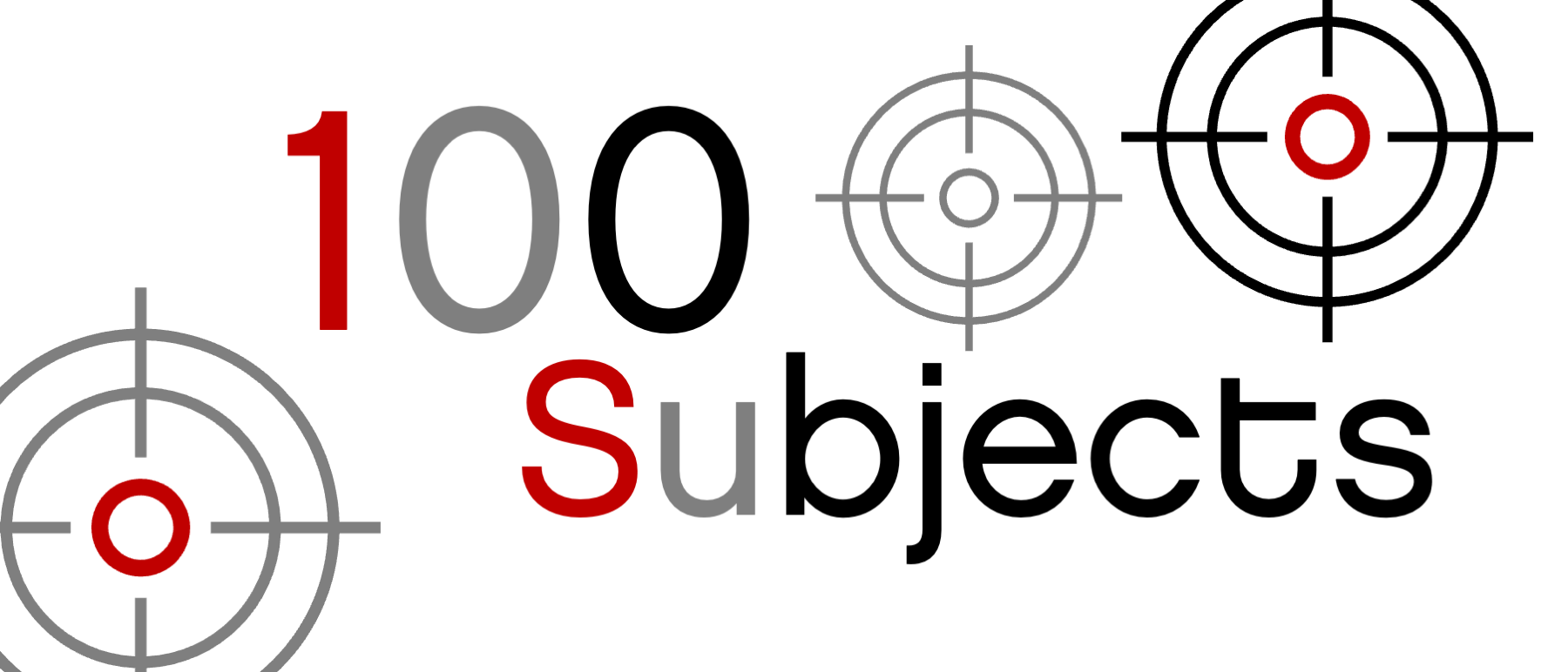Impromptu Speaking

Are you looking for an exercise that will really boost your confidence when speaking in public? Then this is the place for you!
Impromptu speaking, also known as unrehearsed speaking or "off-the-cuff" speaking, is considered the holy grail of public speaking. Or so I have been told... We all know those people who can jabber about any subject without any preparation and simply nail it! Personally, this always makes me jealous to the point of hating them. They seem to have this natural talent for public speaking, but the fact is that this is not a talent; it is a skill, and a skill can be learned! In this case, it is a skill that you can easily train by yourself!
I do not agree with the statement that Impromptu is the holy grail of public speaking, as I believe you should show your audience some respect and make sure you give them the value they expected from watching you. Something you can control by (partially) scripting and practicing your performance, but I do believe training yourself into impromptu speaking is a fast track to having more confidence on stage.
Don't get me wrong; you won't be a master within a matter of days. It will take time. But you can train yourself almost anywhere at anytime of the day, as the exercises are simple, quick, and they will provide you with benefits very fast!
By the way, did I mention already that it doesn't only boost your confidence, but it also has a lot more nice side effects? No? Just keep reading, and I will tell you in a bit.
As I mentioned earlier, you won't be a master in a matter of days; it takes a bit of practice first. Instead of pushing a microphone into your hand, placing you on a stage, and giving you a topic to talk about, let's start a little more simple...
Before I explain how to train yourself, I strongly recommend recording yourself the very first time, preferably with video, and then record yourself every tenth time you practice this. The reason to record yourself is to look back and see the progress you have made, which, in itself, is a confidence booster. With this in mind, this would be the moment to make sure you have the tools ready to do so.
So, back to the exercise and starting simple. Officially, impromptu speaking means unprepared speaking, but given that you are reading this far, it probably means you are not ready to do just that. So let's start with a simplified version and prepare ourselves just a little bit by taking some time to think about what we want to say. Slowly but steadily, we will take this time away until you are comfortable without any preparation. But for now, just prepare yourself and get used to it.
So get some pen and paper to write down your notes and set a timer for 15 minutes, but don't start that timer yet. You still need a subject, and here too, we will give you some flexibility. For now, choose any subject you like, and I really mean "any" subject you like! Just a quick example: "If you had a superpower, which one would it be? Why that one, and what would you do with it?" At a later stage, we will take away your freedom of choice here as well, but for now, you can choose anything you like. My advice here is not to practice with the same subject more than a few times, as it will make it too easy, so try to switch every three or so practice rounds.
Having issues finding a subject?
Check here: 100 Subjects for Impromptu Speaking
With your pen, paper, timer, and subject available, we are nearly ready to start. Just one final bit of information: try to prepare yourself for a speech of somewhere between 3 to 5 minutes in length. Less than 3 minutes is simply not worth it; it doesn't provide any challenge at all, and you will stay too high level to provide any valuable information. Longer than 5 minutes really becomes too long at this stage. This exercise is all about repetition, and keeping it short gives you the ability to repeat a lot!
Once you start talking, promise yourself not to worry about forgetting your lines or stumbling over your words. You can even say the standard "uhhs" and "ahhs" or whatever filler words you use. Don't restart; just keep on going. You will find that these little things will go away little by little every time you practice.
A good tip as well is to start your preparations by defining your key points that you want to include in your speech. These will act as your guidelines for the rest of your speech.
Now you are ready to start! So go ahead, start your timer and use your pen and paper to prepare what you want to say. Once the timer is over, reset it to 5 minutes, start your recording (if you choose to record yourself), and start talking.
Once you have done a couple of rounds, you will notice that it is becoming easier to prepare within the 15 minutes. If this is the case, or you simply want to challenge yourself a little bit more, try to lower the amount of time you have to prepare yourself and keep lowering it until you reach anywhere below 5 minutes.
Once you hit the 5 minutes or less, give yourself the ultimate challenge by taking away your pen and paper. Give yourself only 10-15 seconds and practice this over and over again, but don't take away these 10-15 seconds. This is your goal!
You might be wondering why we have the goal of a few seconds instead of going all the way down to no preparation. Well, there is a simple and logical reason for this. You might have noticed that those "natural born speakers" often take a few seconds' break before answering questions or starting their talk. Politicians tend to do this a lot, and for a very good reason. They first decide what the key points are which they want to talk about and then use those as their guideline for anything they will say. It makes them able to stay on topic and provide the information they find most important.
Oke, in case of politicians I might be wrong as they seem to use these few seconds of silence to make sure they don't answer the actual question.
So one final challenge. So far, you were allowed to choose your own topic, but in reality, you don't always have this choice. So here is your next challenge: I created this page with "100 subjects for impromptu speaking" and what you want to do next is to start with number 1, practice it 3 times, and then go on to number 2. Repeat this for every single one. There will be subjects on the list that don't apply to you, but instead of skipping those, maybe they apply to someone you know, and you can have a speech about how it applies to that person. Another option is to say why you think it doesn't apply to you and go from there.
That's it! Quick and Simple!
Don't forget to share your recordings!
Ah yeah, the additional benefits... As said, this exercise is a true confidence booster! Once you get the hang of this, you will notice that you will get less afraid of forgetting your lines as you start to realise you can pretty much fill in the blanks without any preparation. Next to this, impromptu speaking will subconsciously push you into storytelling mode, making you speak from the heart and mind, instead of from a script, so forgetting your lines will actually happen less often. You will train yourself into taking little breaks before your speech and it will even make you aware of little pauses during your speech. All of this will automatically lower the number of filler words you use (uhhs, ahhs, so...) and boost your confidence in the process.
And the best one... All of the above will be picked up by your audience, who will enjoy your speech a lot more and you will feel this from the feedback you receive both during as well as after your speech.
Win, Win, Win !

